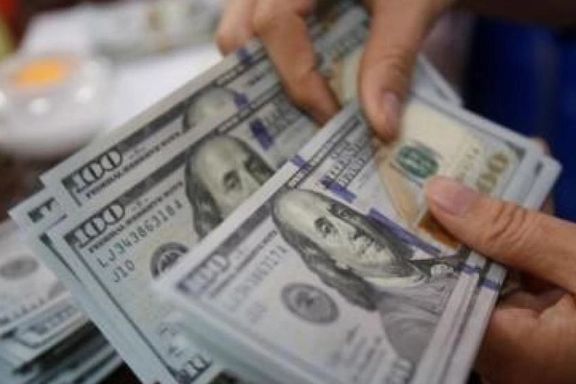'Ifs and Buts' About Iran's Frozen Assets Abroad

In recent months, Iranian officials have been saying every now and then that some of Iran's frozen assets abroad will be released soon.

In recent months, Iranian officials have been saying every now and then that some of Iran's frozen assets abroad will be released soon.
Government-controlled media in Tehran often publish these statements in what some allege are attempts to spread optimism and try to support the falling Iranian currency.
However, none of those news stories have turned out to be true. In the meantime, speculations in Iranian press put the frozen assets abroad between 45 to over 100 billion dollars. Officials constantly highlight the $7 billion frozen in South Korea but Iranian media never mention the reported $22 billion China owes Iran or another $7 billions frozen in India.
One of the latest reports about Iran's frozen assets appeared in Jahan-e Sanat newspaper, which also featured a video about the status of those assetson its website.
During the past week, first the editor of hardliner daily Kayhan, Hossein Shariatmadari suggested that Iran should bloc the entry of South Korean ships into the Persian Gulf via the Strait of Hormuz to put pressure on Seoul to repatriate Iran's oil money. Then Foreign Ministry Spokesman Saeed Khatibzadeh claimed defiantly that "releasing Iran's frozen assets has nothing to do with US sanctions and we will not allow the United States to intervene in this matter." Commenting was not allowed under the post.
Following Khatibzadeh’s statement, the US State Department refuted his claim and said no agreement has been made about releasing Iranian assets.
According to Jahan-e Sanat, more than $50 billions of Iran's money is blocked: China ($22 billion), India ($7 billion), Japan ($1.5 billion), South Korea ($7 billion) and Iraq ($3.5 billion). The figures do not quite add up to $50 billion though.
US sources expressed regret that stories about an imminent release of Iranian Americans jailed in Iran were also untrue. Last week, Jomhouri Eslami newspaper in Tehran had announced that "three dual national Iranian American spies" were released in Tehran. Despite the paper's good access to Iranian sources, this one turned out to be false.
According to Jahan-e Sanat, there have been a lot of speculations about repatriating Iran's funds from Iraq and South Korea and Iranian officials have made conflicting remarks about how and where the money is going to be spent.
Iran's Planning and Budget Chief Massoud Mirkazemi said that money, when and if repatriated will be handed over to the Central Bank of Iran, the National Development Fund and the Raisi administration. None of the three entities have reported receiving any money yet. Nonetheless, economists in Iran agree that any funds released will lead to an improvement in Iran's economy that has been under sanctions’ pressure since 2018.
Jamshid Edalatian Shahriari, a former member of the Iranian Chamber of Commerce told Jahan-e Sanat that although these funds can make a difference for Iran, there are many "ifs" and "buts" involved in the process.
"First, we do not know whether or not these assets are really going to be released. Second, these assets will not be released before a deal is made to revive the JCPOA. Third, Some of these countries, like South Korea have said that they cannot give cash to Iran and that they can pay their debt in Kind rather than in cash, and they will determine what they can sell to Iran when the time comes," Shahriari said.
"Meanwhile, the Iranian government has big debts to the Central Bank and the National Development Fund," and this does not leave too much money for the government to solve its huge economic problems, Shahriari observed.